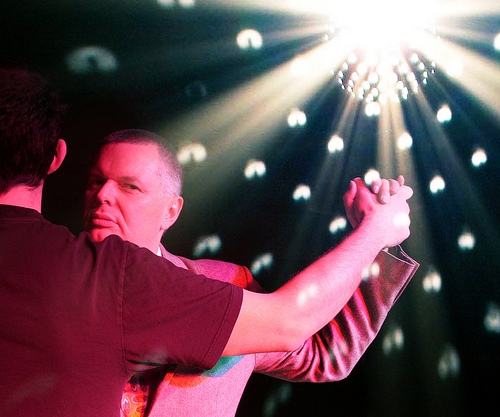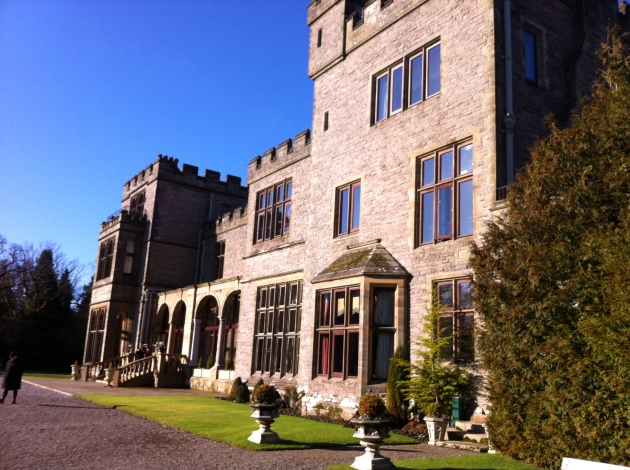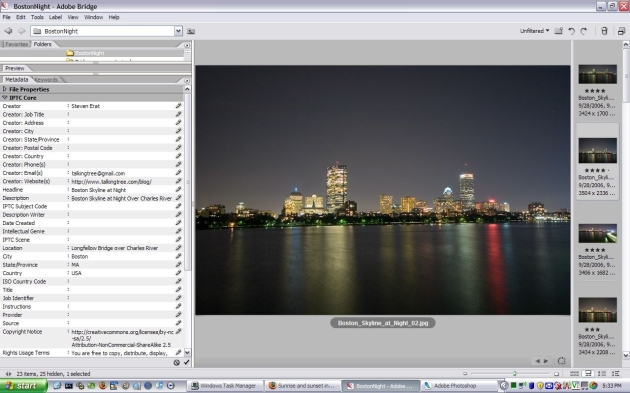“Managing performance data and documentation”
February 18, 2011 3 Comments
This is the title of an event I attended yesterday at the University of Glasgow. Firstly some clarification – performance here means performance art not performance in the management context. The advertising blurb said: “Research in the live and performing arts produces interesting and varied types of documentation and data, including text, images, audio and video. On Thursday 17 February, we will bring together researchers and performers working in the live and performing arts across the UK, to inspire and provide guidance for better management of these materials. “
It was a really useful and interesting day. I know I can tend to focus on science when thinking about research behaviour so it helped me to get a better insight into the areas of live and performing arts. I had a few questions at the outset:
What are the things to be stored?
What does re-use mean in this context?
What are the motivators and barriers for researchers in sharing “data”
All these questions were covered during the day so it was well worth the early start to fly to Glasgow!
Barry Smith (now retired and creator of the Live Art Archive) kicked off the morning with “10 stories”. I didn’t keep count but they were all entertaining and illuminating. He raised interesting issues about longevity and preservation and urged those with digital collections to do their utmost to increase usage as a high profile resource is more likely to be funded for the future – access as a preservation tool. From September, most of the Live Art Archive will be open access.
Stephen Gray from CAiRO (Curating Artistic Research Output) was on next. This project is about equipping researchers with the knowledge and tools to manage their data effectively. They are developing online training modules which look very impressive – really clear and relevant – and they will soon be available in Jorum. They are running a five day summer school to trial them. This is one for repository staff to keep their eye on. Also, they are looking for Case Studies about keeping (or even losing) data so do get in touch with them if you would like to contribute. Stephen answered one of my questions. In science the difference between research outputs and research data is clear. But in the performing and other creative arts, images, videos, audio etc can be the outputs and also the data. Does it really matter how we categorise them? – perhaps it’s a false distinction in this context. The important thing is good data management from the outset of a project or piece of work.
The morning concluded with an inspiring talk from theatre maker, Adrian Howells. Difficult to describe in words the beauty and challenge of his art. His one-to-one work is about contemporary intimacy in different settings. In the context of the meeting, he covered the recording and storage of his data but it was easy to get lost in the meaning of the art itself! His presentation gave a real insight into the motivations and barriers for artists in sharing their work digitally. As did talking to some of the delegates during breaks. In science, a barrier to sharing the data is the fear of lack of recognition, being pipped at the post or someone else making the big breakthrough first. Obviously recognition and attribution are critical for artists but sharing outputs is not a threat to this. A bigger issue was that of letting go of the work in an uncontrolled way – releasing the “baby”. What would people do with it?
After lunch, the focus was on support for researchers at the university (from Neil McDermott and Michael McCann), and although this was specific to the locality I found it useful to get more information about the types of data e.g. music-related. Matt Barr from HATII outlined the technical support they could provide and the day was rounded off by Professor Andrew Prescott who spoke about the importance of preservation and described the work of the ArtsLab which is the research institute of the College of Arts.
The organisers plan to put the presentations online so I’ll post a link to these when they’re available.






